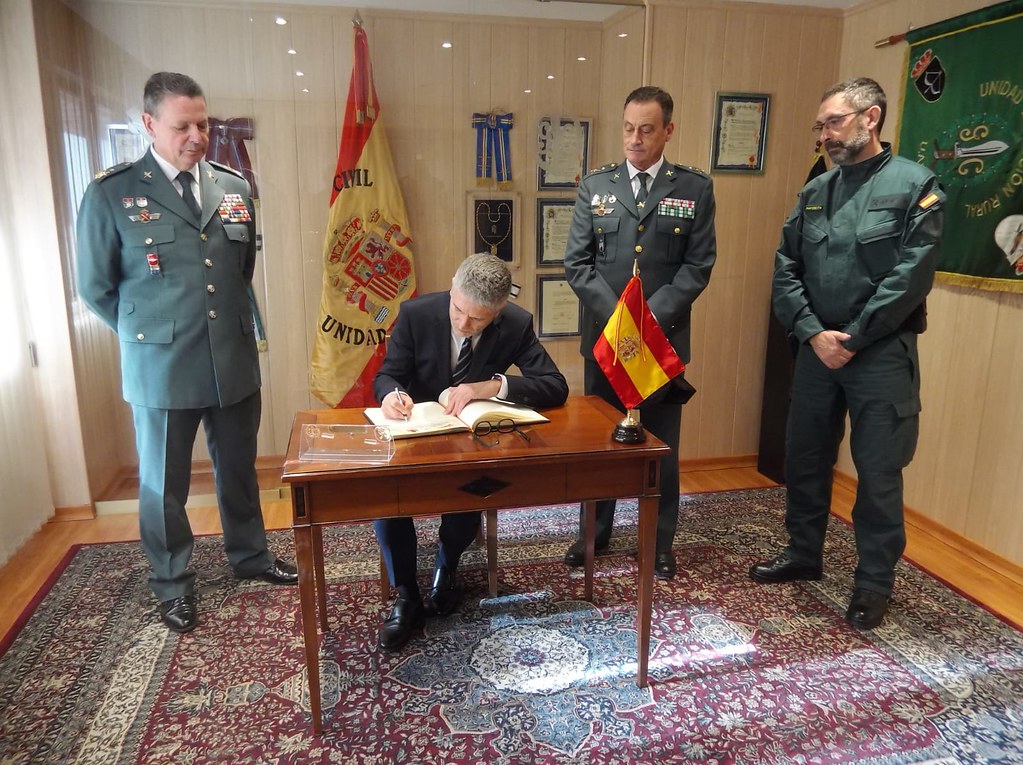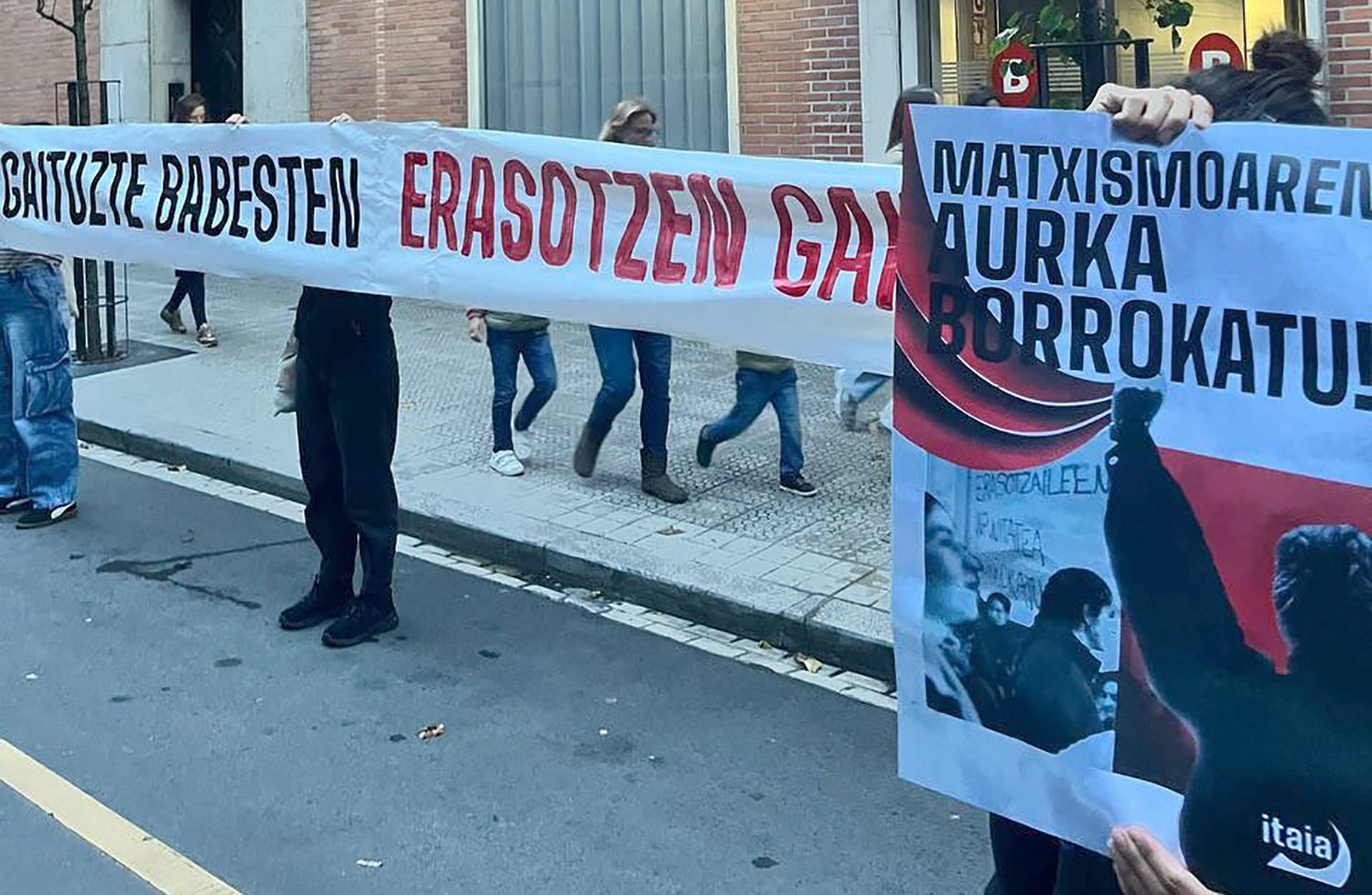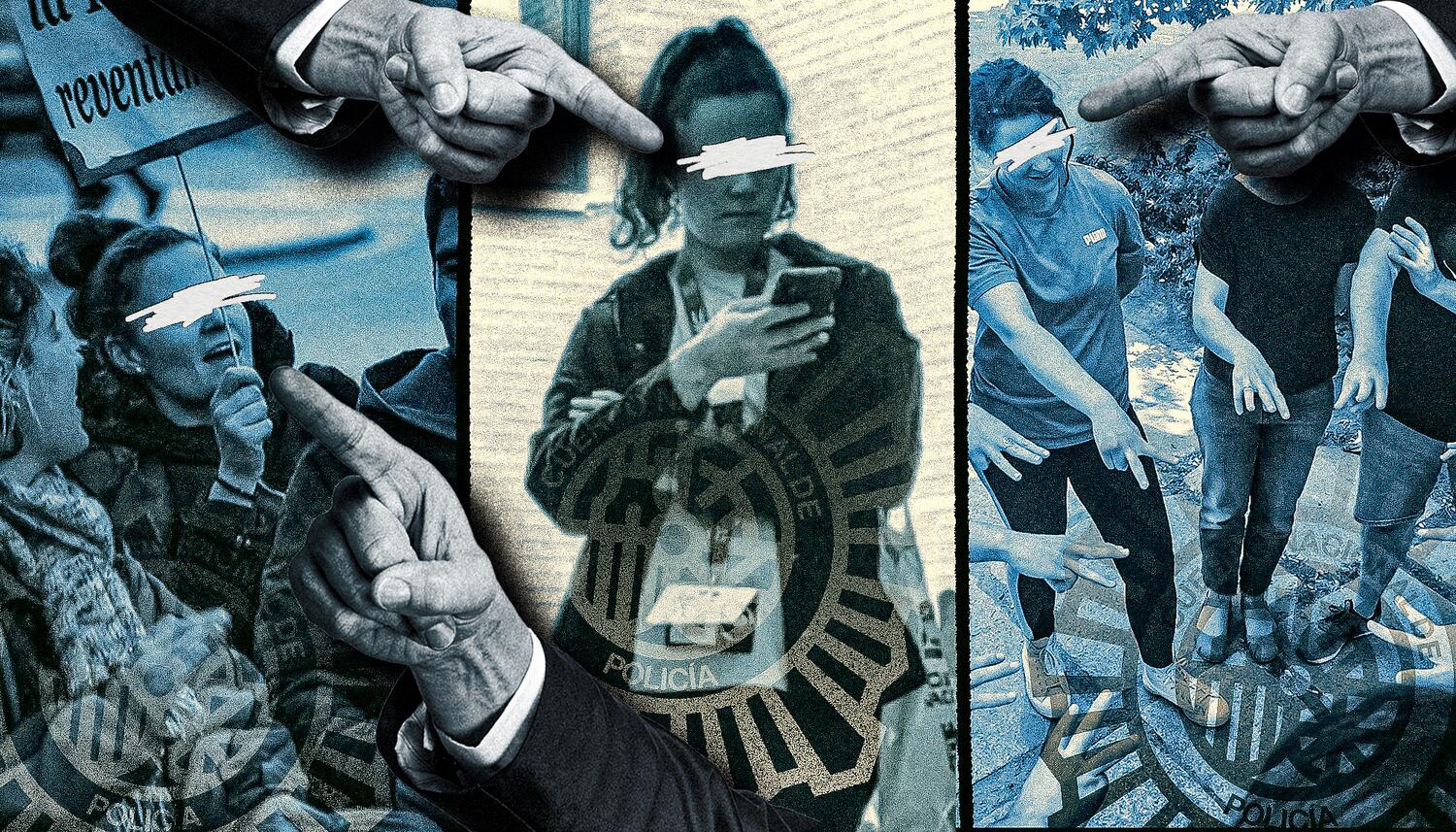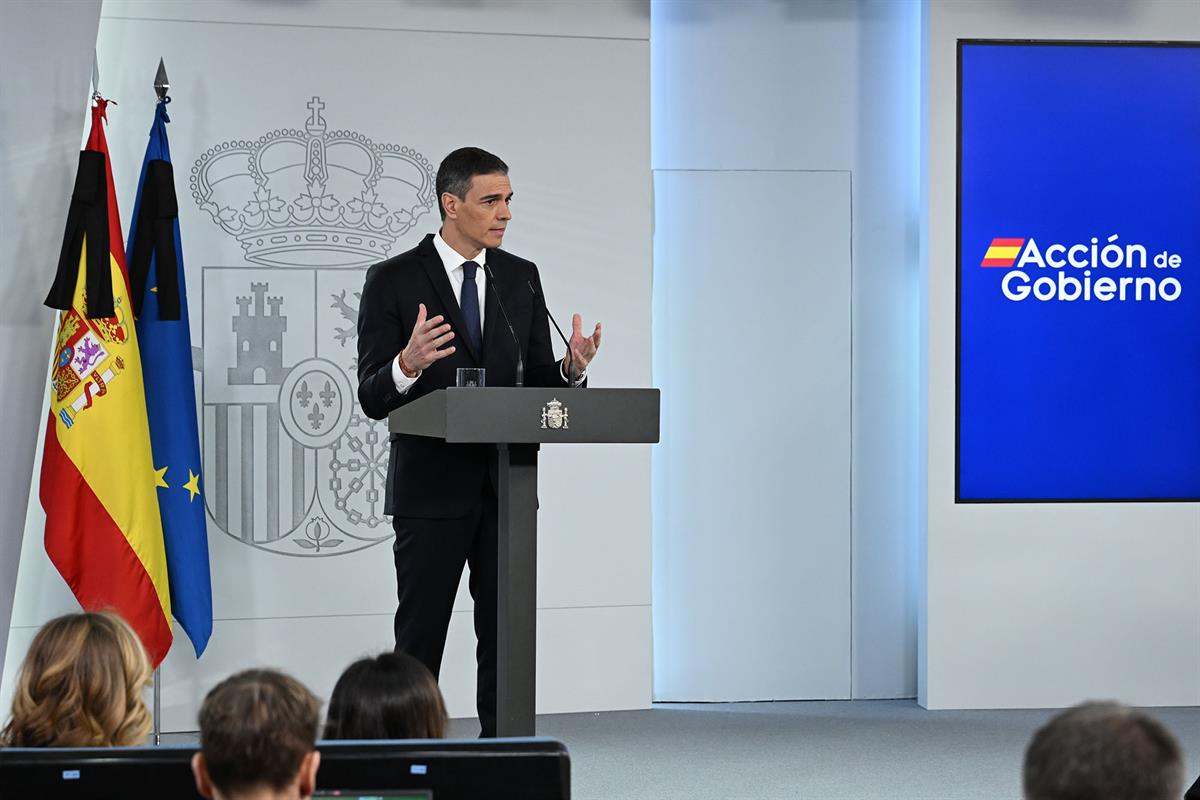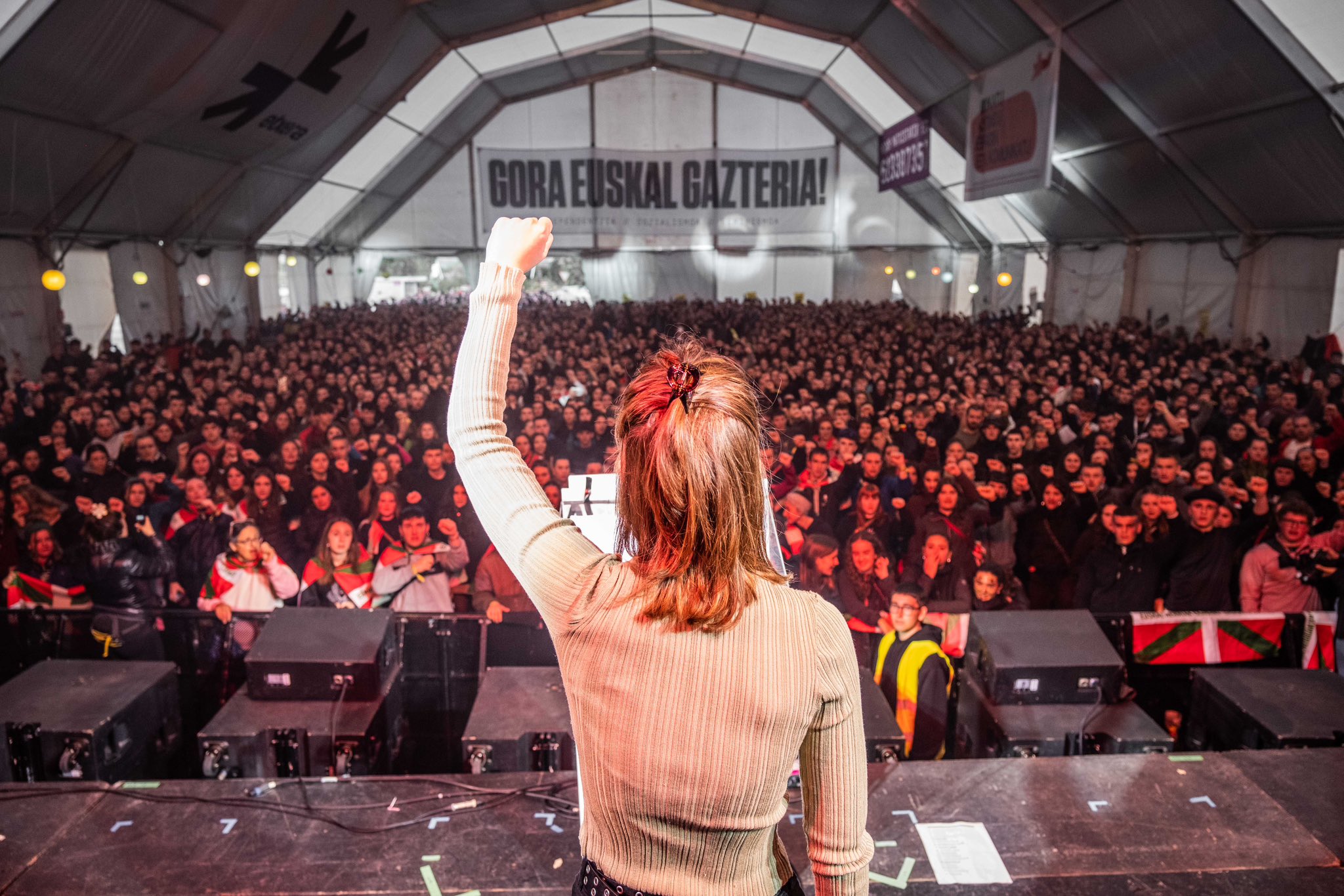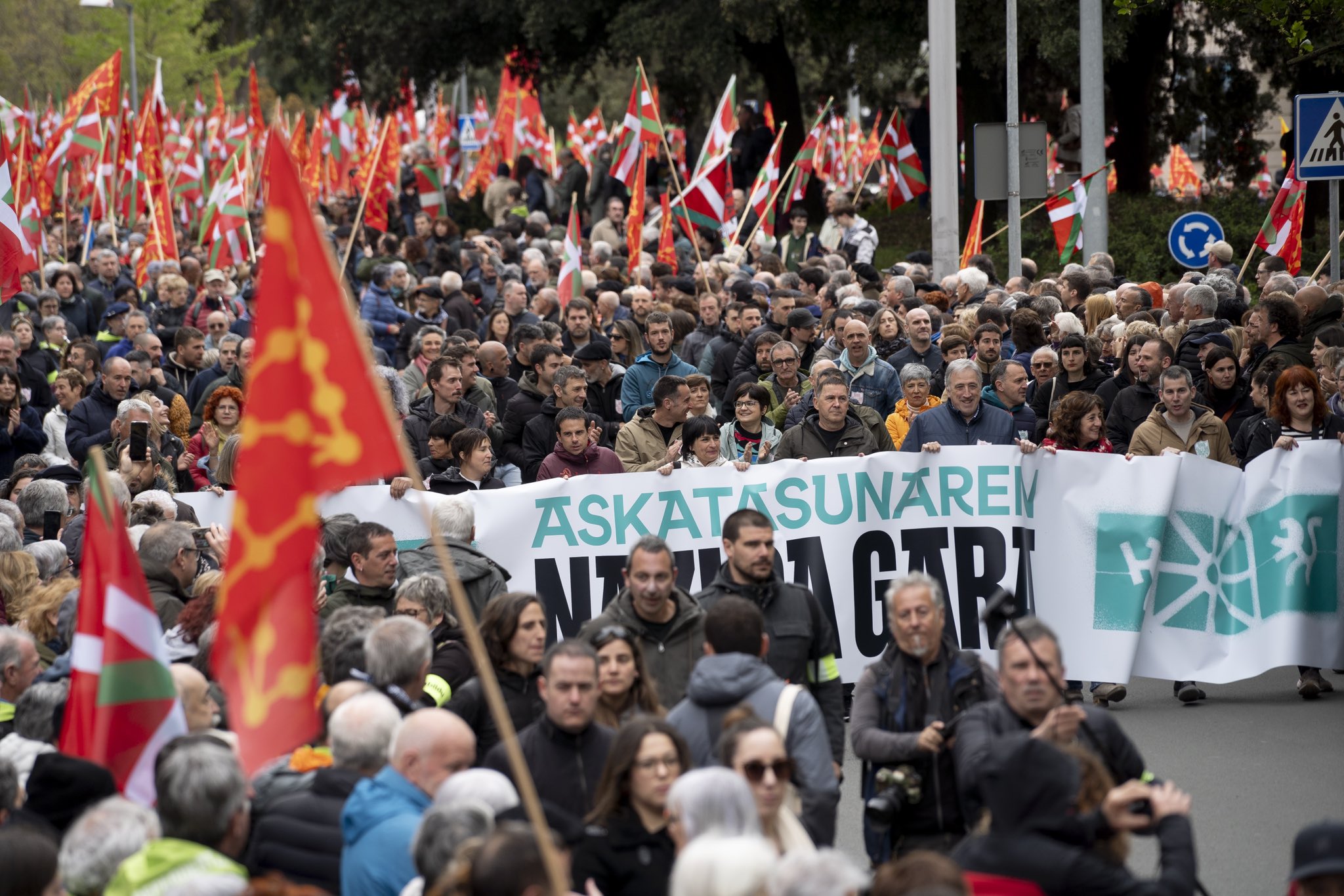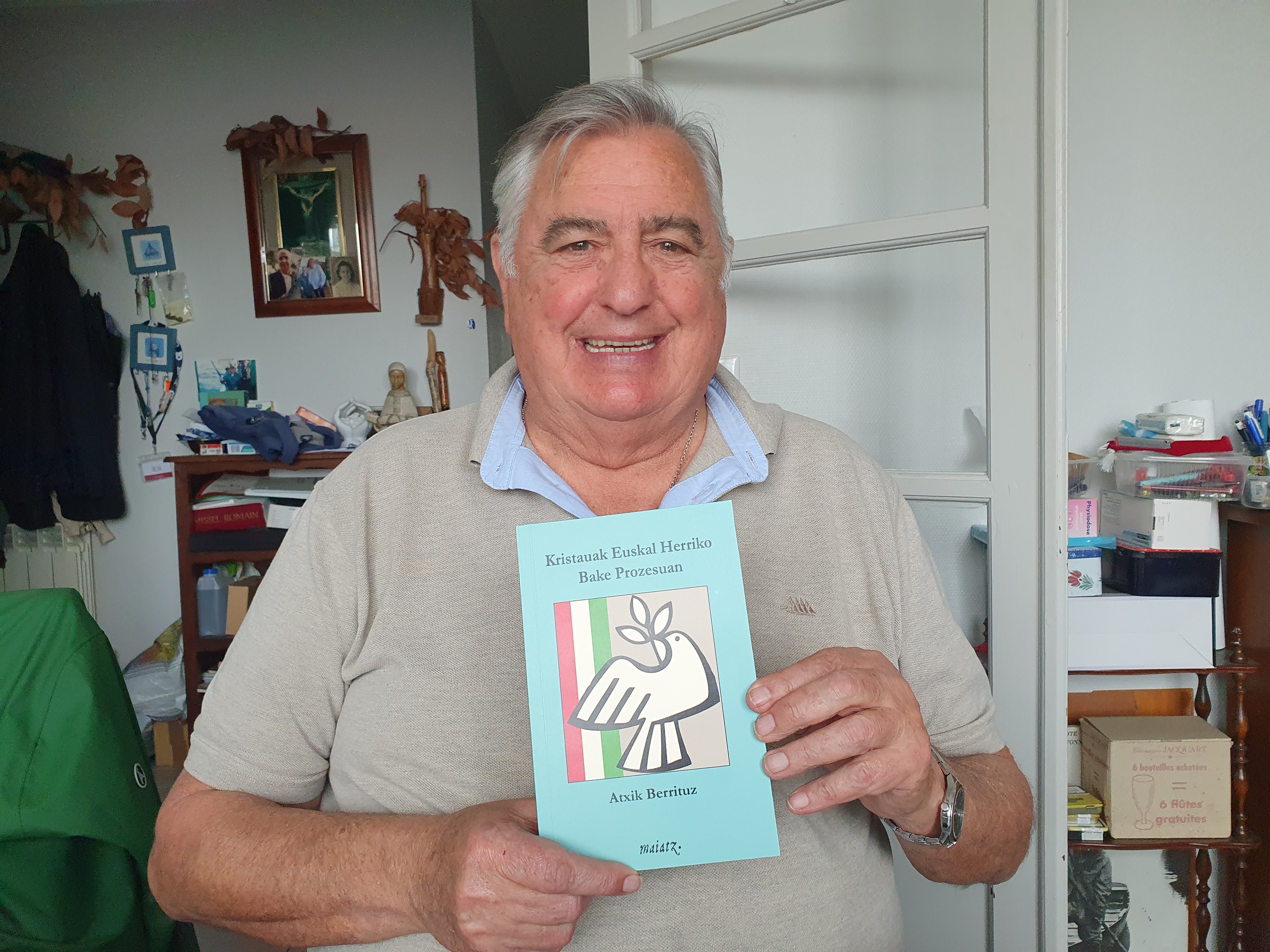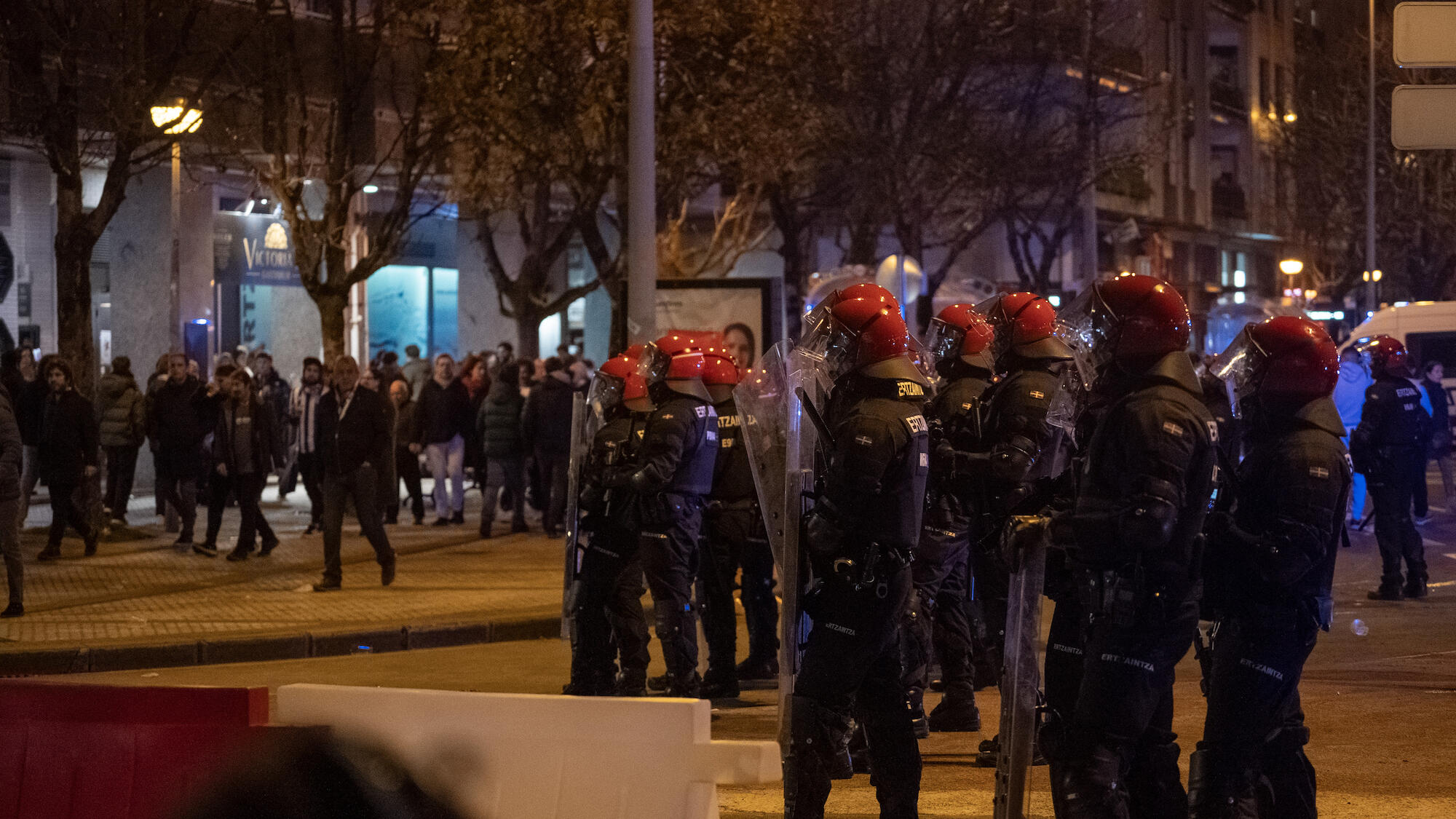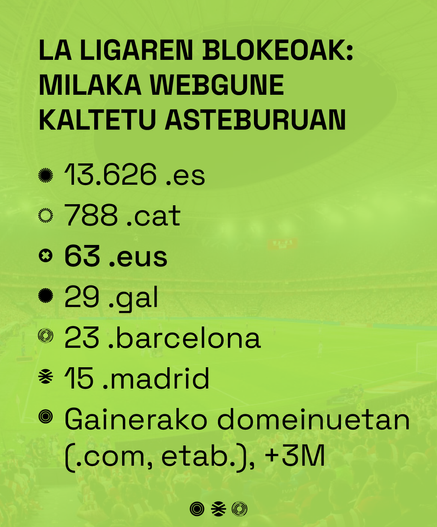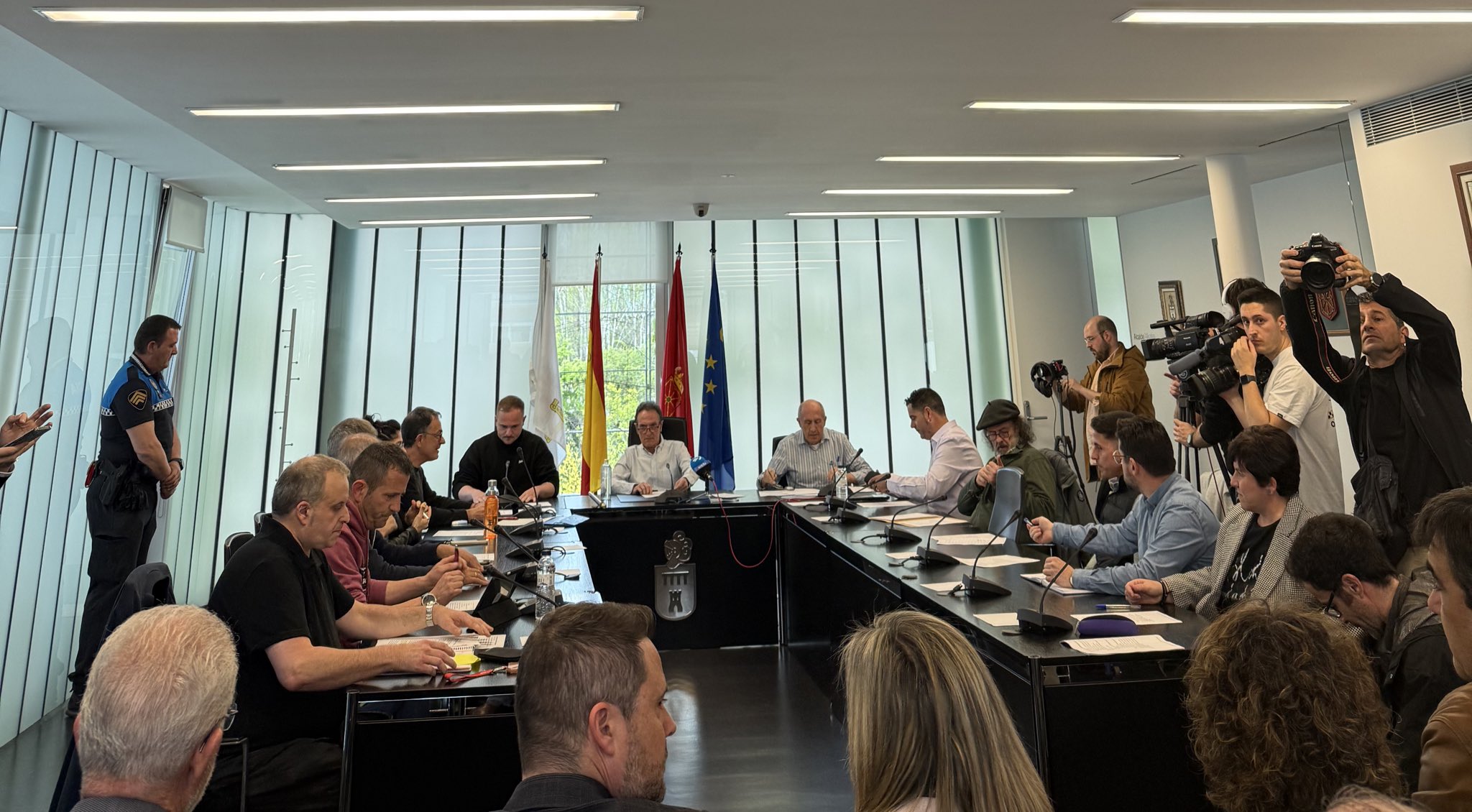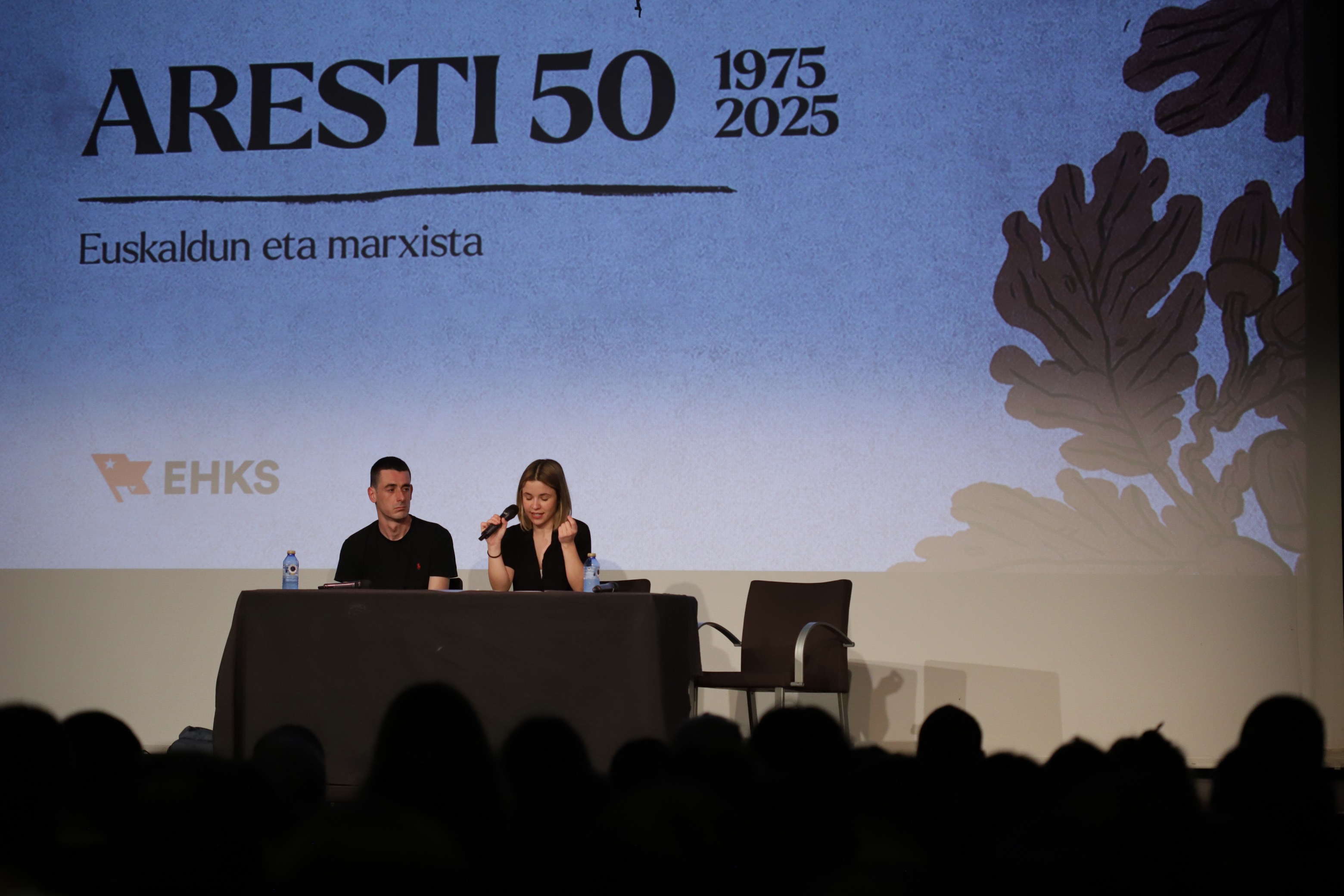"It was an usurpation, with a system that was supposedly fought and that was carried out with a blind obstinacy in the armed struggle"
- Altza-Pasaia, 1956. He exercised as a young man in the autonomous movement of Errenteria, there by 1978.Actualmente has a Tai Chi Chuan school in Donostia-San Sebastián. It shows martial arts in Basque. It works meditation. The seventh death (Erein) is your second session. In 2011, it published its first publication: Four singers: Beñat Achiary, Mikel Laboa, Imanol Larzabal and Ruper Ordorika: “When I was 17 years old, I had a special time. I curated my college studies at the factory. My father told us that he had escaped certain death, because he knew how to read and write. ‘That will save you,’ his father said. Somehow I received the commandment I had under him.”
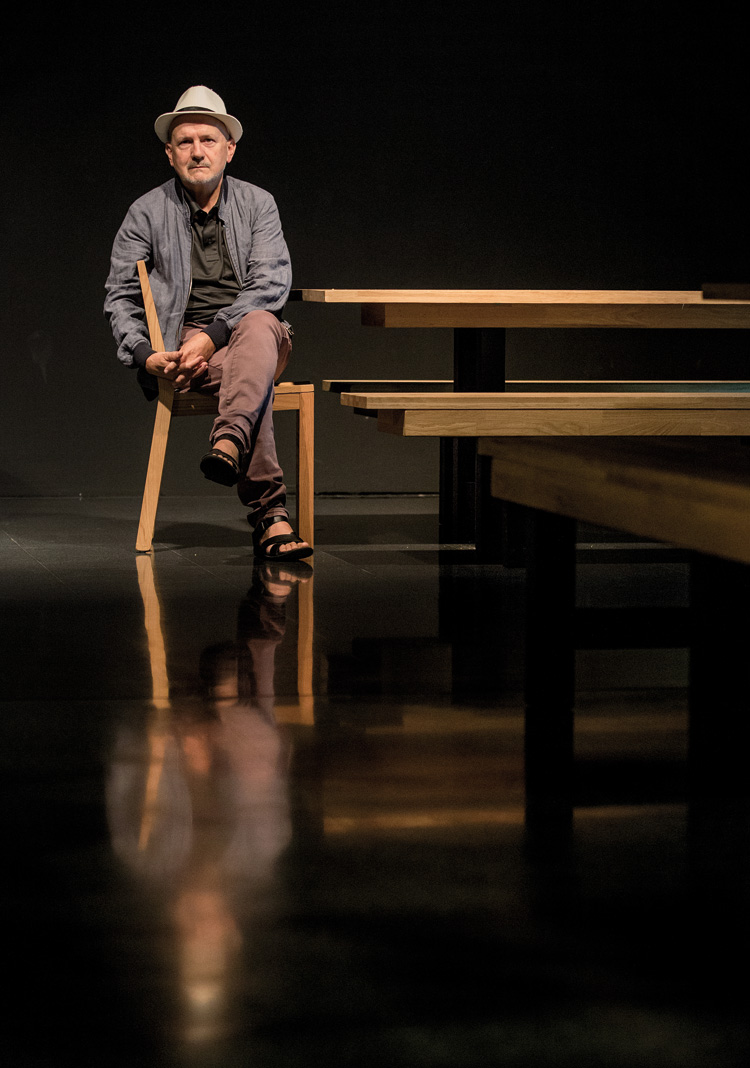
The cover of the book is a photograph taken at the Lemoiz Nuclear Power Plant. The cover is special and the title of the book is also.
The photo is made by me. My daughter comes down. I see it as a dynamite wound, I think it's a concrete and iron sculpture. Maybe the picture isn't commercially attractive. But why explain an awkward book adorned with a “comfortable” picture? The seventh death title was suggested by Attila József's seventh poem. The poem speaks of death and rebirth. It's about conversion, and I, in the background, have written about it in my book.
The programme will deal, among other things, with the social and political struggle that has taken place over the past 50 years. It talks about violence, about death. The issue is not easy. Why the need for “death and regeneration”?
To be reborn you have to die, but as is normal, nobody wants to die. I do so symbolically. However, we must understand that those of us who have lived through the socio-political phenomenon of the recent past – taking into account the central place of ETA – if we do not address the issue of death, we are condemned to make ghosts or zombies. We look like older people, maybe lovely, but we'll stay as if we lived outside society. According to poet József, killing two or six times is not enough, he has to die seven times. And the seventh effort is for yourself. The seventh death is not a comfortable book, but I hope it will be read by a minority.
What is the seventh death for you?
It's the book that awaited me. Pushed by the editor and by my friends, I took the step of writing, because I'm not a writer. I feel like a student and a writer. At my age, you have to be “brave” to start this kind of work. "Will I be able?" I thought. It was the end of ETA and I was intensified by the need to respond to my internal pressure, to untie the internal knot. The book begins with a written letter to her daughter. “Now the hardest starts,” I write to him. I challenge myself. “What now?” In other words, what do we have to do from now on? How or how do we get rid of the nightmare that we have experienced in the future? The main theme of this agenda is grief. Topics on which further investigation is required
“The book begins with a written letter to her daughter. ‘Now the hardest starts,’ I write to him. I also challenge myself: And now what?
has. Some will say, “How far have you gone or want to go,” “What are you talking about?” I think we have to pause for a moment first. That is what I wanted to put into the book. I believe that we are not going anywhere with less than I have proposed. That does not mean that search respuestas.En the book there is a kind of emergency call that the prescriptions of remedy: “Stop!” We have to take some time to reflect on the crisis and the change that we are experiencing. All processes of change implicitly lead to a crisis. The crisis means loss, from the perspective you had predicted, that reality has turned you violently. This is called trauma, accident or whatever. At that time it is essential to stop.
What is grief from your point of view?
Grief is not, this misfortune has happened to me and I have to have a bad drink. Grief is, so to speak, an active passive action. There's activity, because you're ready to make that journey, but you need to know that you don't know how far that journey will take you. It is a firm decision. I mean, I'll drink that bitter drink without knowing the effect yet. In other words: an accident has occurred to me and we strive to deny the phrase “This should not have happened to me.” With this attitude, we have decided on the next step along the way. That frustrates grief. On the contrary, grief demands confronting this vacuum, there is the passive side.
Can the book be considered a “bridge of reflection to put it before the law”?
It should be clarified. What law you say and what law the book is about. The law can be written in upper case and lower case. I'm talking uppercase. We don't know what that law is. The law is, in a way, the other. “The other”, also in capital letters. The law is what I can't understand or capture. Following the image of Kafka, there is a fearsome watchdog before the law. This law operates as an unattainable and terrible power, provoking something that has no answer. In this regard, the Law, insofar as it is intractable, but always present, is demanding a permanent response from us.
The programme deals with the passage of ETA from the post-transition to the current ETA. You criticise the reflection of the Abertzale left on ETA’s activity.
Yes. Today almost all – both the Abertzale left and those who have gone through ETA- say that “our diagnosis was good, Urkullu or Erkoreka admit it”. That is, the Transition was corrupt, which did not serve to overcome Franco. “Our diagnosis was right,” they say, but they take a corrupt leap, their reasoning is very symptomatic: “As the diagnosis we made was correct, our initiative has been correct.” Since when? You're in pain and the diagnosis tells you that you have cancer, but no cure serves you.
You are talking about the defeat of ETA.
Yes, I mean the defeat of ETA, but rather than the defeat of ETA, going further, I mean the defeat of those of us who wanted to change the world. What happened, as I explain, of course, was this: ETA was an organization that was within the whirlwind of society, we were working on social dynamics, deep down. Seen from today, this situation is difficult to understand. In this violent socio-political situation, they were all killed a week, many of them policemen. ETA’s violence
“When a person ‘chooses’ the path of conversion, since on the threshold of insanity no one chooses freely and calmly, he has a kind of instinctive response. That’s why conversions are also absolute.”
on the other hand. In this situation of violence the apparatus of the left Abertzale is articulated. Among other things, because the Abertzale left was not structured. The Altsasu Bureau was established in 1978. Those ETA militants were a minority. This was in “hot” places like Errenteria. There was a kind of assimilation. I say the impersonation, even with a harder word: it was usurpation, with a system that was supposed to fight – elections, institutions… – and with armed struggle, with blind strife.
If you look at it from today, you say it's hard to understand the situation. Explain the situation more.
Entering the “political” field would take a long time. This Errenteria movement met with the system, the transition, the process of crisis and reconversion at the global level. My experience is this: In Errenteria there were demonstrations of 10,000 people and general strikes for a week. How is it possible that in a year we have a sense of power and at two years the movement stays in nothing? What happened in the movement against the Nuclear Power Plant, Vitoria or Lemoiz? How can it be that with such a strong grass-roots movement, after two years, on the occasion of the trade union elections, the militants we were there are left with the feeling that no one was following us?
“Overnight the next day the stage was changed,” he wrote in the book.
Yes. We did not have the capacity to deal with this situation. What was the outraged majority doing about this unfortunate situation? He leaned towards the slogans coming from the apparatus on the left Abertzale: “Go, guys!” Instead of stopping for a moment to look at the situation, which had already to be regretted, the opposite path was taken: the harder and stronger it behaved, the better. In his words, it was to be radical. But this trend is not radical. Without realizing it, you become auxiliary to the enemy you fight with.
Power is perverse.
Yes. Adherence to our “share of power” means that it is impossible to see the bankruptcy situation we live in. Pride leads us not to accept our limits, not to accept the limits of our effort. We automatically become the feeder of our helplessness and frustrations.
People are “fourteen.”
There's a complex smallness in that. This pride shows great weakness. It gives the impression that weakness is a weakness and it is not. On the contrary, in the fortification there may be one of the most dangerous weaknesses.
You give your opinion on the case of ETA leader José Luis Álvarez Santacristina (Txelis). You've worked the conversion from the background.
I wonder: Why does the conversion phenomenon occur? My vision is that we're on the border. For a moment you have reached a border, you have put into play your life and that of others and you have collided against the wall. You have few outputs to get out of there. What options do you have? One, suicide. Another, fall into insanity. It happens to many. The third is conversion. Of course, the most positive thing about all three is conversion. Because others are absolutely destructive.
“It’s not about making a moral judgment, however important it is. I don't want to morally judge Chelis. I have long polemized with interesting but erroneous contributions of another kind of ‘verse’, such as that of Joseba Zulaika”
When a person “chooses” the path of conversion, between quotation marks, as on the threshold of madness nobody chooses in a quiet and free way, it has a kind of instinctive response. So conversions are also absolute. All of a sudden life and death are at stake. The one who lives the conversion feels a lightning bolt. Therefore, the solution seems to me to be “reasonable”. There are many examples of this in history.
It has questioned the conduct of several people. Do you want to assert the need to review our morality?
Yes and no. Because it's not about making a moral judgment, however important it is. I do not want to judge morally from Chelis or any other person. I have long debated with interesting but erroneous contributions of another kind of “verses”, such as that of Joseba Zulaika. What I'm saying is: “Listen, if you make your conversion public, as a result of that supposed modification, I challenge you because you “have chosen” your change when you are at an imminent time of life or death. At the moment there is no really thought out solution, there is no choice of that level. There's a survival boost. I criticize that after such a process, we go up into the pulpit and start to preach. I am critical of that attitude. What do you come to set your head as an example when you do not even know where you are? What’s more, with conversion you assume you didn’t know where you were, you’ve alienated yourself.
The thing is painful.
Of course. What chelis or regret say is very simple and has been repeated a thousand times throughout history. I'm interested in knowing where that person was, for example, when Yoyes was killed. Or it had serious consequences when the “kale borroka” was produced. I am interested in the reflections and explanations about it, not where the right and bright path is after “falling from the horse”. It is a very hard interpellation, because there are hard issues between us.
In fact, section II of the programme is entitled Dolu baten Arrastoa (fingerprints of a grief). I was in Errenteria. You criticise Luis Elberdin, a militant and a member of his time in the Sortze minez Renterian subsection.
It is not the only “historical” interpretation I criticize. Another scandalous example is that made by the historian of the UPV Raúl López Romo about Lemoiz, under the government of Patxi López and taking advantage of the legitimacy given by the university. In our history, there have been many of them, of great responsibility. Of course, it's very different to be a ETA leader or a mediocre historian, as in the case of ETA. The Elberdin affair has happened many times. That is, the person participates in a concrete process – ours was in Errenteria – and this process implies an evolution of politicization.
“We talk about ethical responsibilities, but also political responsibilities: ‘People are demobilized’ or ‘consciousness has plummeted a lot’. Are the ‘others’ always concerned about it?”
But what is politics? We are talking very little about what comes in the political section of any newspaper. Politics is your process. When you pose a boundary in your family, in your work, in society, in your everyday life, you take a choice. Suppose it says, “I disagree with these working conditions,” and a dynamic starts there. This same dynamic implies the awareness of the limits. For example, what allies the boss has, what strategies and forces he has. So politicization is a qualitative leap, that is, you become aware that this supposedly small space is played in a large space, in which there are balances of authority and power. Become aware and you have to come to some conclusions. This is a process of politicization. Not a mere collective deviation through a process of ideologization or a collective emotional selection. You do not know the consequences of a genuine politicisation process, they have little to do with slipping into certain slogans and formulas. Otherwise, we just feed fetish.
In the book he argued that in Errenteria, during the transition, there was a kind of usurpation.
It also meant internal exile. I have the impression that, both then and after, nine out of ten people have gone back one moment or another. That is the responsibility of several political Commissioners, if we speak from a liberating point of view. Most of the people involved in collective activities have gone back, rethinking our personal, social and political position, or simply, angry and burned back home. We are talking about ethical responsibilities, that is what I also speak about in the book, but there is also political responsibility: “People are demobilized,” or “consciousness has gone down a lot.” Are the “others” always responsible for this?
Atxik Berrituz giristino taldeak Kristauak Euskal Herriko bake prozesuan liburua argitaratu du Maiatz argitaletxearekin. Giristinoek euskal bake prozesuan zer nolako engaiamendua ukan duten irakur daiteke, lekukotasunen bidez.
It’s not Christmas Day, it’s Christmas Day that we Basques need. Once a year there are repeated calls from potential patriotic parties and groups, on these dates, the homeland of the Basque Country is the Basque Country/Euskal Herria around the proclamation. It's a matter of a... [+]











